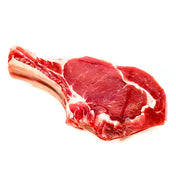Eating meat has been a staple of human diets for millennia, providing essential nutrients and serving as a cultural cornerstone in many societies. However, the conversation around meat consumption has evolved, spurring both praise and criticism.
The Benefits of Eating Meat
-
Nutritional Value: Meat is a rich source of high-quality protein, essential amino acids, iron, zinc, and B vitamins, particularly B12, which is crucial for brain function and energy metabolism.
-
Satiety and Strength: Meat is filling and supports muscle growth and repair, making it a valuable part of diets, especially for those engaged in physically demanding activities or sports.
-
Cultural Significance: Meat plays a significant role in many cultural and traditional practices, from family meals to celebratory feasts, representing more than just sustenance.
Ethical and Environmental Considerations
-
Animal Welfare: The ethical implications of factory farming and animal cruelty are major concerns for many. Ethical sourcing, including pasture-raised and grass-fed options, can mitigate some of these concerns.
-
Environmental Impact: Meat production, especially beef, has a substantial environmental footprint, contributing to deforestation, greenhouse gas emissions, and water usage. Reducing meat consumption or choosing sustainably sourced meat can help minimize this impact.
-
Health Concerns: Overconsumption of red and processed meats has been linked to health issues like heart disease and cancer. Moderation and balance are key, with an emphasis on lean meats and varied protein sources.
Finding Balance
Eating meat is a personal choice influenced by health, ethics, and lifestyle. For those who choose to include it in their diet, being mindful of the source, quantity, and quality of meat can help align their consumption with health goals and ethical values. Reducing meat intake or exploring plant-based alternatives can also offer a balanced approach that supports both personal health and environmental sustainability.
Ultimately, the decision to eat meat should be informed and intentional, reflecting a balance between the benefits it offers and the broader implications it carries.










